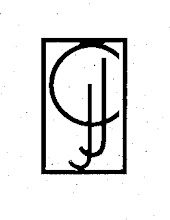For reasons I won’t go into, I’ve not been able to be on my feet. Which means I’ve not been able to walk the dogs at the Humane Society, which has plagued me with guilt lately. So when an opportunity arose this week to perform office tasks for the Humane Society, I jumped at the chance. In fact, I offered to spend the entire day there.
Preparing for Volunteering
My day started badly before it was even time for me to get out of bed. My neighbor was awake before the sun peeped out, already enjoying the company of her visiting relatives. I know this because the building we live in has paper-thin walls and flooring with no insulation. If I couldn’t sleep through the party, I had no choice but to start my day.
As I putzed around the kitchen, trying not to disturb my husband’s slumbers, my husband was suddenly at my side holding out my phone to me. Ah, yes. I’d put my phone in the living room when I got up, but I’d failed to turn off the ALARM feature. As quiet as I’d tried to be, I’d pestered my husband out of sleep anyway. Profuse apologies on my part as my husband padded back to the bedroom.
Plenty of time lay ahead of me before I had to leave, time enough to cook a hearty breakfast. This part of my morning went fine until our newly installed smoke detector sounded off.
“Fire! Fire!”

cried the robotic female voice. “Emergency!”
Bloody Hell. Now everyone in the building was surely awake. I opened the windows and fanned the sensitive contraption with a broom.
Again, my poor husband emerged from the bedroom and said, “If you wanted me to eat breakfast with you, you could have just said something.” More apologies on my part.
Finally, it was time to go. Actually, very nearly
past time. I was careful to pack a lunch, snacks, and anything else I might need over the course of the day. Made it as far as the car before I realized I’d forgotten the glue sticks. Had to return for them since I’d promised to bring my own. (The Humane Society glues envelopes closed and the kind of glue they had the last time I volunteered was messy. So I thought I’d use my own glue sticks for faster, neater work.)
Now I had to WALK (which I was not supposed to be doing) all the way back to the apartment to find the sticks, which naturally roused my dear husband from his dreams once more. Arrrgh.
I made it to the Humane Society in time. Despite the rain, and despite the driver of the impaired scooter who had traffic crawling the pike.
I settled into my “office space” (i.e., the kitchen) at the Humane Society and tried to ignore the equipment set out on the table. I assured myself, THAT’s not for me. I’m going to be folding and stuffing or sorting and filing. THAT thing is someone else’s project.
Of course, true to the tone already set for the day, the Volunteer Coordinator tells me the “thing” (a paper cutter) is, indeed, my tool for the entire day. I considered leaving right then.
Should I Stay or Should I Go?I’m serious.
I felt stuck in that proverbial spot between the rock and the hard place. If I left, I would be letting down the organization. If I stayed, I would likely let down the organization. Memories of past battles with similar tools flooded my consciousness while I dithered about what to do.

For the record, I have a range of skills. Some I excel at and wish someone valued them enough to pay me handsomely for: reading, editing, proofreading, public speaking, creating and streamlining processes and procedures, trouble-shooting and problem-solving. Some of my skills I use only at home—they’re serviceable but not good enough to share: playing the piano, flute, and djembe, cooking, gardening. Then, there’s the list—by far the longest—of UNskills: the things I cannot, and should not, do. Among the infinite items on this list are using a paper cutter, using an X-ACTO knife, using scissors, drawing anything.
Displaying Team Colors and HumiliationEons ago I toiled as a proofreader and copy editor for a marketing agency. Sometimes, at the end of the day, one department or another was frantically putting the finishing touches on some project that FedEx was scheduled to pick up at any moment. To this cluster of activity I usually offered my assistance, which usually entailed copying, collating, sorting, or packaging. However, one evening, I offered assistance to the design department.
A graphic d

esigner set me up with a cutting mat, a straightedge, and a knife—tools of his trade at the time. He instructed me to cut out the ads from the galleys. It was easy—no measuring necessary. I simply had to line up a ruler with the crop marks and then knife out the excess paper. I knew the routine. I’d watched my precise, architect father do such a thing thousands of times. But I also knew my limitations and asked the designer if there wasn’t some other way I could help.
I got that “look” from him—as if he couldn’t believe what he was hearing, as if I was insincere about wanting to help.
I caved. I said of
course I would cut the ads. You see, I had garnered a certain amount of respect and admiration from my colleagues at the agency for my editing skills and my design savvy. I was held in esteem and I didn’t want to jeopardize my reputation.
With laser focus and a determination to excel, I began cutting. Cautiously. Too cautiously, probably. From the top crop mark to the bottom one, I removed the excess paper and turned the ad to make the next cut. At this point, I apparently lost all track of time. The graphic designer returned to my side, expecting to collect five finished ads from me yet seeing that I’d accomplished next to nothing.
He inspected my efforts. And he was kind. “Hmmm. Let me show you an easy way to do this.” He fixed my jagged edges and talked me through the next cut. I thanked him for the step-by-step instructions, and he stepped away.
He hadn’t told me anything I didn’t already know. But knowing and doing are two entirely different things, aren’t they? I could get from Point A to Point B easily enough, but the route was never the most direct. And the results were less than satisfactory, which I could easily discern. The curious part of this clumsiness is that I’m agile in other arenas: music, dance, theatre. Why, oh why did straight lines elude me?
When the graphic designer checked my progress the next time, his face lit with alarm and pity. “You really can’t cut straight, can you?” I shook my head in shame. No, I really can’t.
Doomed to DisappointFast-forward to my day at the Humane Society. Not only was I expected to cut out HUNDREDS of small rectangles of paper (with NO crop marks as guides), but half of the rectangles had already been cut and mucked up by other volunteers. I was brought in as THE FIXER!
Oh My Dog! Could this be worse? I tried to explain my cutting track record, but was told to just do what I could. Which I did. But it was a miserable way to spend 7 hours.

The staff at the Humane Society is warm and friendly and appreciative of all volunteers. Each one thanked me for the tremendous work I was doing. Many of them remarked on the monotony of the job and what a trooper I was to put up with it.
Ha! Little did they know. Work
can’t be monotonous when every moment of it challenges your skill sets and composure.
A couple of things kept my spirits up, though. First, two of the resident cats kept me company throughout the ordeal. And second, and more important, the paper rectangles I was cutting were slated for use at an upcoming fundraiser—the black-tie Beastie Ball—the Humane Society was throwing. My ego could withstand a hit or two on behalf of homeless pets.
I’ll recover my dignity soon enough. The question is: Will I ever again be asked to volunteer?
[All vintage art from The Graphics Fairy.]
 Said my dental hygienist yesterday, “I sure hope 2012 is a better year than this one was.”
Said my dental hygienist yesterday, “I sure hope 2012 is a better year than this one was.”


















































